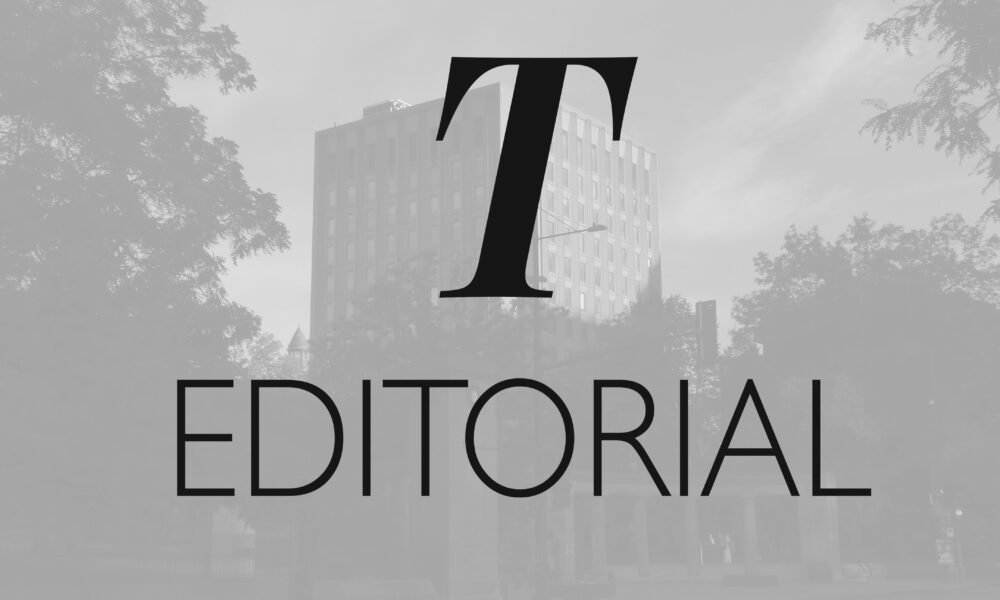Content Warning: Mentions of sexual and colonial violence
Amidst endemic gang violence, fuel blockades, and a cholera outbreak in Haiti, the United Nations (UN) Security Council is considering a military intervention to support the Western-backed central government. Foreign incursions have already begun, with Canada and the United States sending military equipment to Haiti on Oct. 15. These measures have been met with widespread condemnation and protests from Haiti to Montreal. The West’s military intervention in Haiti’s internal affairs is consistent with its legacy of vicious and sustained colonialism, which is what led to the country’s unlivable conditions in the first place. The effects of colonialism transcend borders, extending to impact the Haitian diaspora through systemic racism, including in Quebec and in Montreal. The Canadian government must end its violent interventions and actively listen to Haitian voices in conversations about what is best for their country.
Haiti was the first Caribbean country to gain independence after its overthrow of French rule in 1804, and the first country to permanently abolish slavery. While independent for over 200 years, Haiti remains a brutalized target of Western colonialism. The U.S. violently occupied the country in 1915, and it was forced to pay a debt to France until 1947, continuing an economic legacy of French exploitation. More recently, in 2004, a UN military intervention, which included Canadian soldiers, committed widespread rape and sexual abuse and brought a cholera epidemic to the country that killed nearly 10,000 people. The UN faced repeated calls from the Haitian population to leave, but the operation persisted until 2017.
These actions from the West are not coincidental; they serve to reinforce imperialist power and interests. In 2004, Canada supported a coup against the democratically-elected leader of Haiti, Jean-Bertrand Aristide, which caused violence and instability in the country. Canada’s recent play for intervention is yet another attempt to exert Western control over Haiti’s politics and economy, and it must be stopped before Haiti’s cycle of suffering at the hands of colonialism is repeated.
Western political manipulation surrounding intervention extends beyond military campaigns and applies to self-purported “humanitarian” aid as well. The West’s conception of aid is not charitable; it provides development assistance in exchange for political influence and dominance, reinforcing power dynamics created during colonization. Canada and the West get acclaim for sending “aid” to countries such as Haiti, but then get to dictate how they are supposed to develop, who their leaders should be, and on what terms they can intervene. Aid should never be a political strategy to obtain dominance and control, and its current conception must be reworked to prioritize the self-determination of the recipient countries.
There are approximately 74,000 Haitians living in Quebec, mostly in Montreal, and as is often the case with Black communities in North America, they are subjected to over-policing, educational inequities, racist barriers to child-care, and severe immigration restrictions. These factors make it difficult to immigrate, and once in Canada, many are unable to receive permanent residency and are deported. Poor labour conditions and economic exploitation of Haitian workers in Canada further exemplify that Black immigrants are seen primarily as commodities by the Canadian immigration system.
Haitians in Montreal have a long tradition of resistance against injustices. During the 1970s and 1980s, there was unfaltering Haitian-Canadian activism, including the movement against the deportations of Haitian Canadians and the Haitian taxi drivers’ battle against discrimination. It is time to recognize that the façade of Quebec and Canada as welcoming and humanitarian is a lie. The Canadian government must work to reform the immigration process and to eliminate systemic barriers for the Haitian community. A first step is creating an expedited immigration process for Haitian immigrants and refugees, similar to the one created for Ukrainians immediately after the war. The lack of a similar system highlights a racist double standard and shows that the Canadian immigration system does not prioritize Black lives.
The McGill administration also has a hand in the ongoing oppression of the Haitian community. McGill participates in the economic segregation of Montreal by raising rents in the surrounding area—forcing low-income communities such as Haitians out of neighbourhoods adjacent to campus. Additionally, professors have failed to give proper attention to the crisis in Haiti, despite it being a focal point in the history of the fight against colonialism and white supremacy. While much of the educational onus falls on professors, other lecturers such as teaching assistants also have the power to guide discussions in conferences and get students thinking critically. Without appropriately addressing the colonial crisis, the burden of education will unfairly fall on Black and Haitian students. As future leaders, McGill students have a responsibility to learn about the harms of imperialist intervention and fight to ensure it does not continue in Haiti.









Pingback: Stop making a celebratory spectacle out of war - The McGill Tribune